A key value of the scouting movement is brotherhood. Lithuanians and Ukrainians have been nurturing this quality in their relations for over several centuries. The ability to respect culture, language, faith and customs allowed both peoples to found one of the greatest states in Europe — the Grand Duchy of Lithuania. In addition to these historical points of contact and familial alliances, our countries are also united by a long struggle for independence.
Therefore, it’s not unusual that the brotherhood between these countries is reflected in the relationship of Lithuanian and Ukrainian scouts in the 20th century.
Plast scouts feel the support of Lithuanians during this difficult time that Ukraine is currently experiencing. During the summer of 2022, Lithuanians invited Ukrainians to camp in safety with them. Close to 40 children enjoyed nature far from the threat of war.
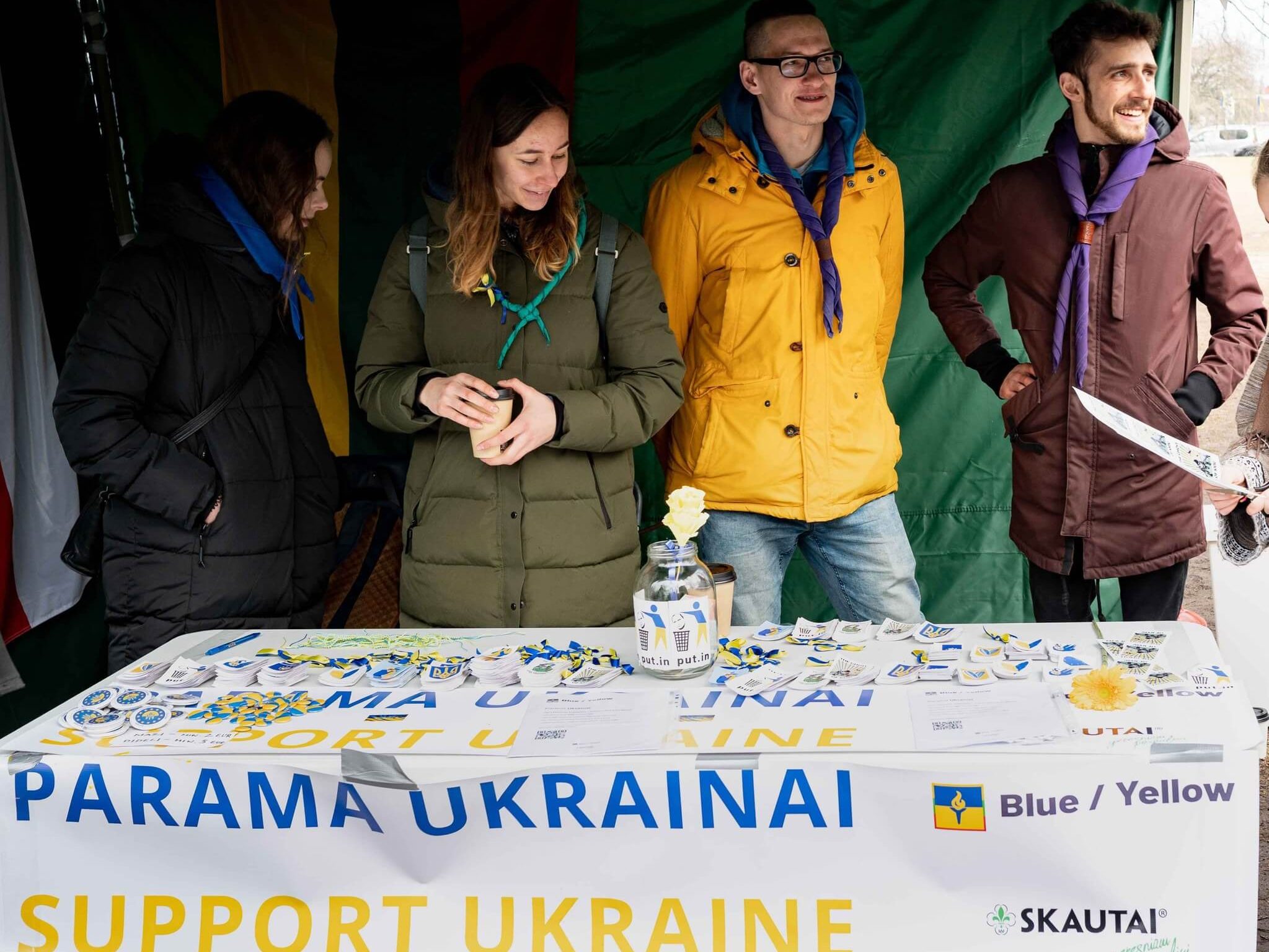
Aside from this, scouts have organized many meetings, volunteered and hosted Ukrainians who were forced to abandon their homes.
There is no doubt that the relationships formed through the scouting movement have withstood the test of time for nearly a century.
“Ukrainians greet our scouts sincerely”: the start of our joint history.
The Scout movements were formed in both countries during the early twentieth century: Plast was created first in 1911 and within 6 years Lithuanian scouts appeared.
The first written mention about Lithuanian scouting was noted in 1923, in a Ukrainian Plast periodical. It was printed in the Transcarpathian magazine “Пластун-Junak-Cserkesz”. It was published in the Ukrainian, Czech, Hungarian and Yiddish languages and often included news about various international scouting movements in the world.
The comment about Lithuanian scouting follows: “In Lithuania, the idea of scouting began to spread in 1917. The first group was founded in Vilna as early as 1918. It was founded by Petras Jurgelevičius-Jurgėla – Ed. There are up to 2,000 scouts. The work is slowly progressing, including publication of a magazine: Skautas”.
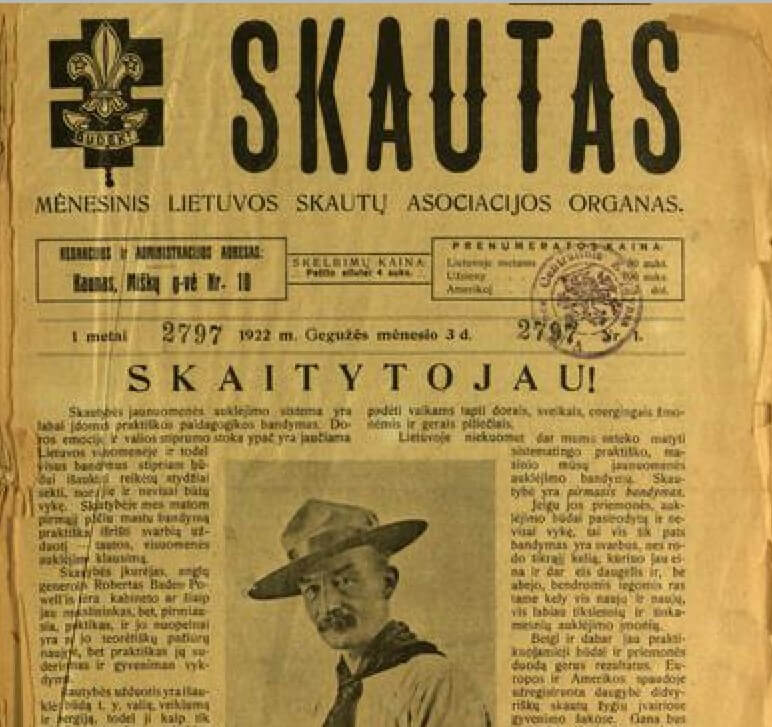
In 1925, the scouting organizations of Lithuania and Ukraine chose St. George the Dragonslayer as their spiritual patron. In its decisions, the leadership of Plast always tried to follow the practices and traditions of international scouting movements.
In 1930, the developmental paths of Plast and Lithuanian Scouting radically diverged.
The Polish occupatonal authority categorically banned Plast. A subset of scouts proceeded to function in an underground movement, but in significantly reduced numbers. The center of Plast activity became concentrated exclusively in Ukrainian Transcarpathia, in the territory of the Czechoslovak Republic.
At the same time, in Lithuania, opposite events occurred: the scouting movement received recognition and state support. Parliament passed “A Law Regarding the Lithuanian Scouting Union”. The President of Lithuania, Atanas Smetona became the Chief Scout and the organization was supported by the Ministry of Education.
During this difficult time for Ukraine, the representation of Plast was established in the territories beyond its borders. In 1930, the Union of Ukrainian Plast Émigrés (Spilka Ukrainian-Plast Émigrés “SUPE”) was established, with its center in Prague. In addition to coordinating Plast members outside of the Motherland, the Union initiated international activities with representatives of other scouting movements.
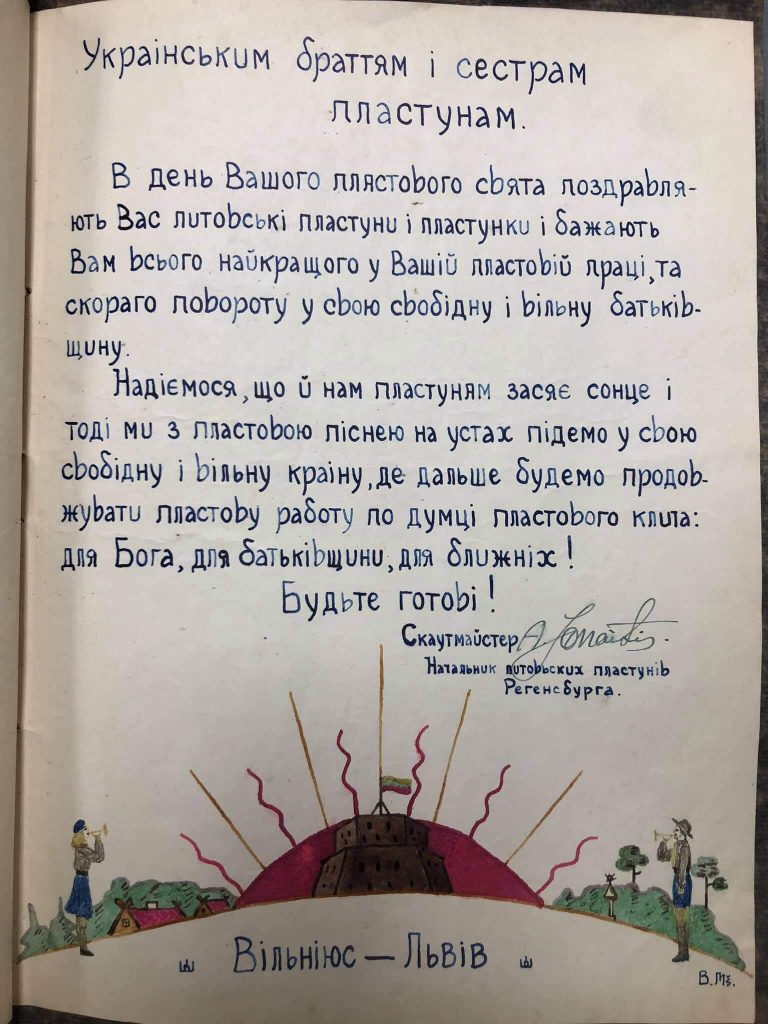
In 1932, Lithuanian-Ukrainian scouting cooperation was recorded for the first time in “Visty SUPE”, noting that the Lithuanians repeatedly mentioned and notified members of their organization about the activities of Plast. In addition to mentioning Plast in the press, Lithuania was one of the first countries to officially congratulate Plast on the 20th anniversary of Ukrainian scouting. A year later, a delegation of Ukrainians and Lithuanians camped together for the first time at the World Scout Jamboree in Hungary.
In 1936, in the main publication of Lithuanian scouting, Skautu Aidas, the author wrote: “Ukrainians send our scouts their sincere greetings. Leaders of Ukrainian Plast are very interested in Lithuania, some of them know our history well. Here (in Prague) they get your magazine “Skautu Aidas”… There is a Ukrainian-Lithuanian Student Society in Prague. Ukrainian scouts want to be in touch with ours. We (Ukrainians and Lithuanians) share many misfortunes, so we must get to know each other better”.
What was not destroyed by the Second World War?
During the Second World War, many scouts joined the army, where, unfortunately, many of them died. Other representatives of scouting both in Ukraine and Lithuania ended up in the so-called camps for temporarily displaced persons (DP) on the territory of Germany and Austria.
Additionally, Lithuania lost its statehood and came under the occupation of Moscow, as Ukraine had been for two centuries in a row. For this reason, Lithuanian Scouting lost its membership in the International Scout Union (ISS; from 1961 — WOSM), which Plast had never received due to the lack of its own nation state. However, individual scouts, not organizations, gained membership in the ISS. Due to this, Atanasii Miljanych (Plast scout) and Vytautas Tsepes (Lithuanian scout) worked together in the “Advisory Committee”, created by the representative of the ISS in the occupied territories of the defeated Third Reich.
In Germany, many scouts found themselves in refugee camps, in particular in Regensburg. In addition to Lithuanians and Ukrainians, representatives of Latvia, Estonia, and Poland lived there. Information has been preserved showing that, at that time, the leader of the Lithuanian scouts in the camp was Scoutmaster Jonaitis.
In 1945, the International Scout Council (ISC), also known as “ISA” (International Scouts Association), was established. The leaders of the organization were Plast scouts Bohdan Hanushevsky and Mykhailo Ivanenko. The following year, in honor of the anniversary of the scout brotherhood in the DP camps, a multilingual booklet”Be prepared” was published.
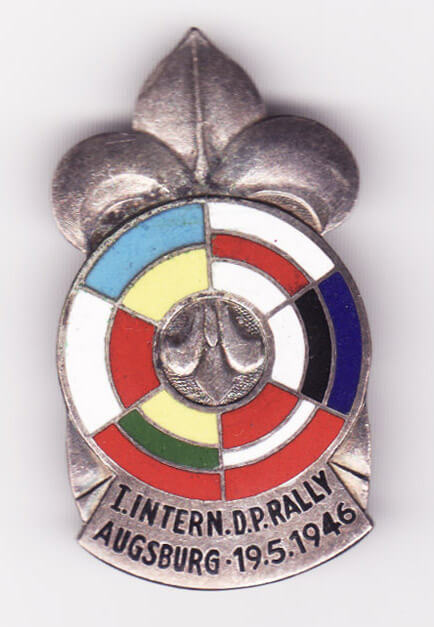
In Germany, Plast scouts had grown to like the tradition of Eastern European jamborees of the 1930s. So, in 1946, the first International Jamboree abroad for Lithuanian, Estonian, Latvian, Belarusian and Polish scouts was organized in Augsburg.
The commemorative pin remains to this day, portraying the flags of all countries that participated in the Jamboree.
Lithuanians were always very welcome guests at Plast events. Scouts were present at the meeting in Mittenwald on the occasion of Plast’s 35th anniversary.
One of the Lithuanian scouts later mentioned: “We always had good relations with the Ukrainian scouts… (this thread) was really a manifestation of scouting brotherhood”.
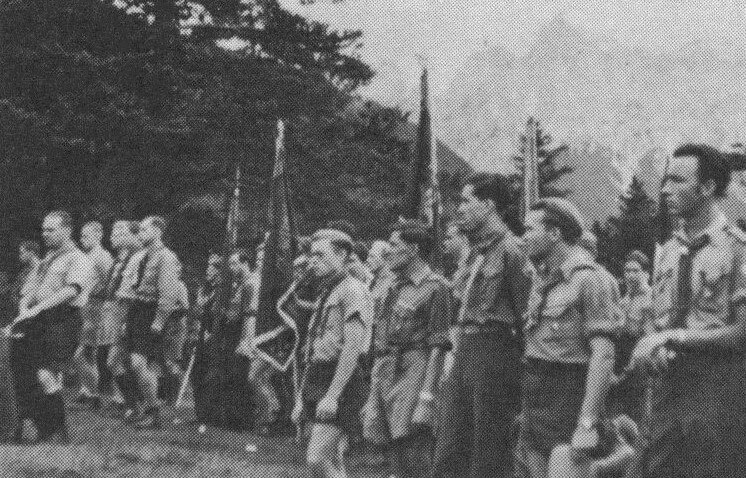
Friendly relations between the scouts of Lithuania and Ukraine are clearly illustrated in a report from 1947, describing, perhaps, the first joint bonfire:
“The sincere songs of the Lithuanian scouts poured out – a Plast scout wrote – about their distant homeland, about impenetrable forests, about quiet river waters and calm lakes. Alternatively, our Plast scouts sang about sunny Ukraine, weaving in songs about Plast, marches and new songs that had been written in a foreign land”.
After singing, the Lithuanians would shout “Long live Ukraine” — and Ukrainians would answer in Lithuanian: “Long live a free Lithuania”.
There were many other events where the Plast scouts interacted with Lithuanian scouts. For example, in 1947 and 1948, Plast in Hanover organized an international meeting of scouts in exile.

Ukrainian-Lithuanian relations were so close that Plast accepted Lithuanian scouts to its more developed and numerous units. It was recorded, how in March, 1948, young Lithuanian girls joined the Plast center in Salzburg.
Under the “Iron Curtain”
On May 12, 1951, Ukrainian Plast scouts initiated a meeting of the “DP Scouts Advisory Committee”, renaming it the “Conference of Scout Associations in Exile”. The new structure included all scouting organizations from outside the “Iron Curtain”, including Lithuanian ones.
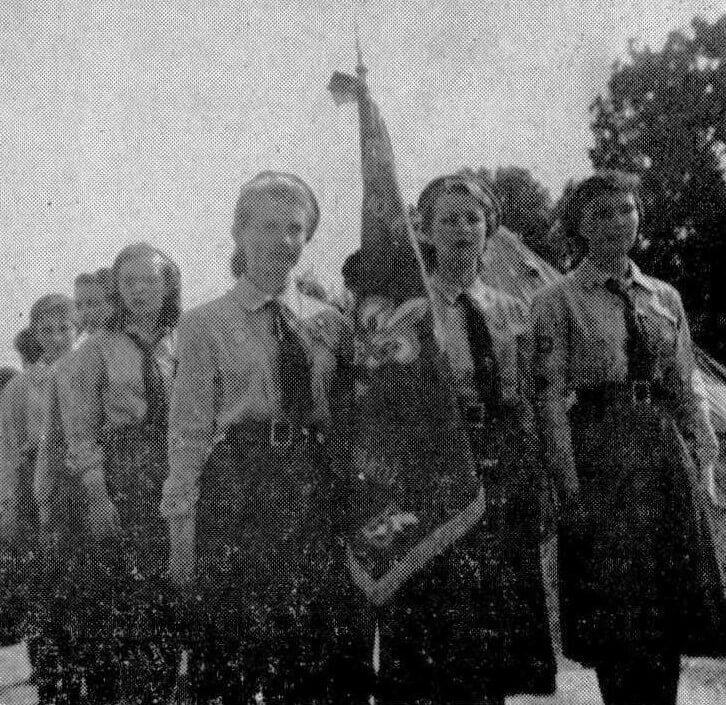
The exiled scouts cooperated not only in the international arena, in order to gain membership in the ISS, but also actively interacted with each other. For example, a Plast delegation took an active part in the 4th Lithuanian National Jamboree on August 16-30, 1958 in Michigan (USA).
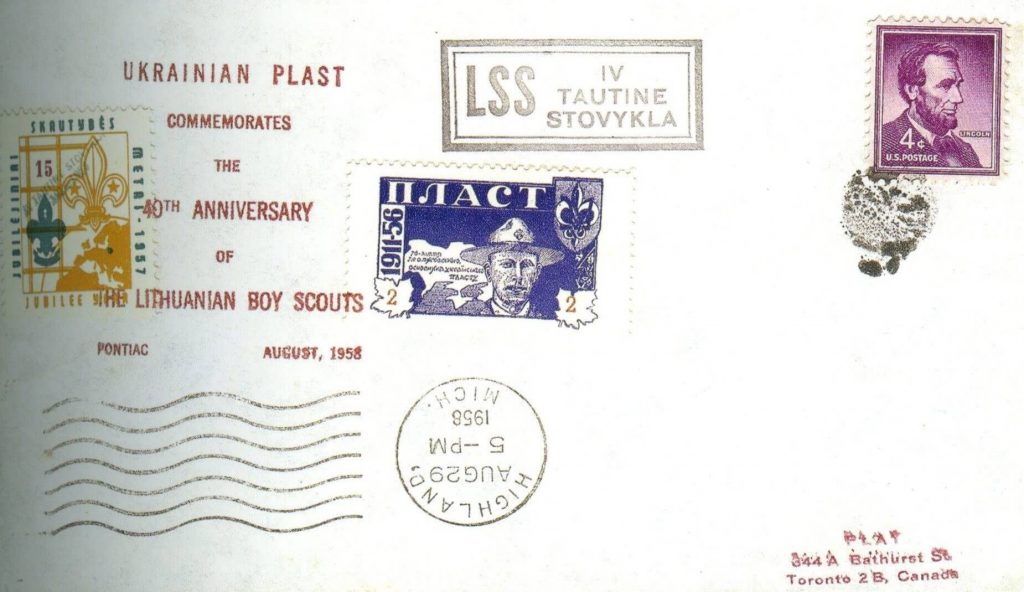
In 1961, the International Scout Conference denied the exiled scouts membership in the union, at the same time the organization was renamed from “international” to “world”, which automatically closed access to all scouts who temporarily lost their statehood due to the occupation.
Due to these decisions, CSAE stopped its activities, but the friendship between Ukrainian and Lithuanian scouts continued. In 1962, they met at the Jubilee International Plast Jamboree for the 50th anniversary of the foundation of Ukrainian Scouting, and in 1963 – at the National Jamboree in honor of the 45th anniversary of Lithuanian Scouting.
“The good attitude and presence of the Ukrainian Plast scouts – wrote one of the Ukrainians – drew the special attention from the Lithuanian leaders, and in particular their Chief Scout. During his speech, he gave the Lithuanian youth Ukrainians as an example of a people, that despite enjoying the briefest period of independence in history, still knew how to remain strongly organized and patriotic”.
Paradoxically, after the fall of the Iron Curtain and the return of the nationhoods of Lithuania and Ukraine, the scouting organizations renewed their activities in their homelands, but neither attained membership status in WOSM.
In 1995, a new organization “Lithuanian Scouts” (Lietuvos skautija) appeared in Lithuania. Plast fought for 20 years for the opportunity to be a member of WOSM, but the newly created organization of Scouts of Ukraine became an official member of the world society – as in Lithuania.
A friend’s shoulder is close by: Lithuanian-Ukrainian scouting relations today
Real Scouting brotherhood between Lithuanians and Ukrainians has persisted to the current day. In particularly difficult times for Ukraine, Lithuanians invited Ukrainian children to their homeland to give them a sense of security and to spend time in a beneficial way.
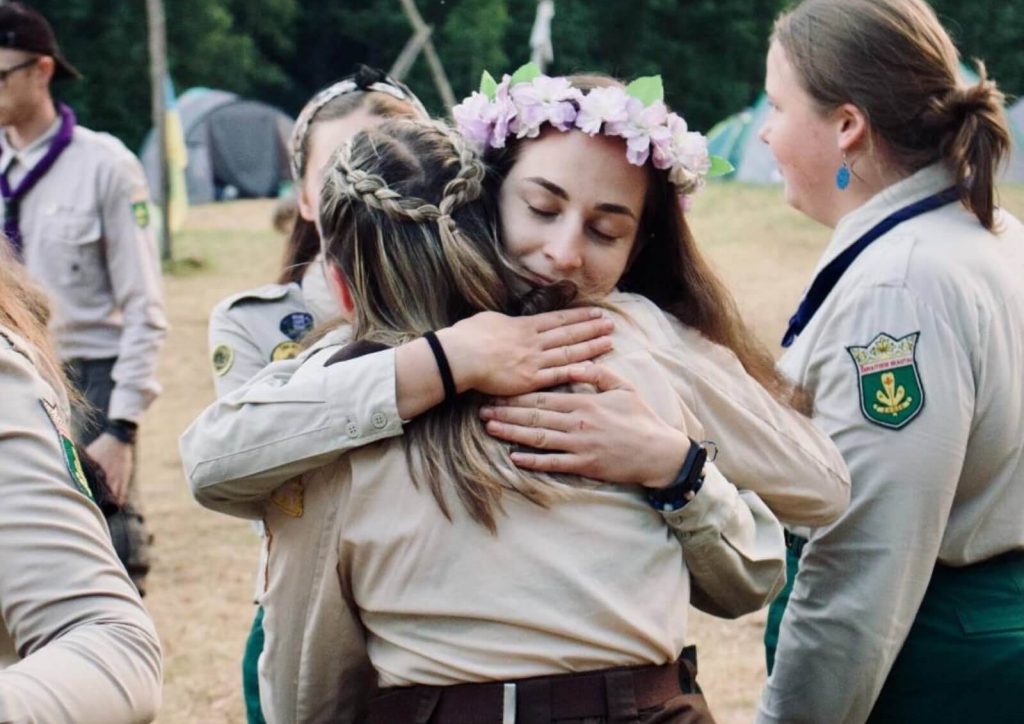
Plast scouts were able to join the annual Lithuanian camps “Iskra” and “At the foot of the wooden throne”, which were organized by various Lithuanian scouting organizations.
Camp “Iskra” (“Kibirkštis”) took place thanks to the Žemaitijos skautų organization (Žemaitijos is a region of Lithuania). Yevgenia Vasiliev accompanied one of the Plast delegations and shared her reminiscences about the camp:
“Generally, the atmosphere was very similar to the “Sviato vesny- Spring Festival”, a kind of festival-camp format. We talked a lot, learned that most of the procedures for preparing, organizing and holding scout camps are similar. Their “Scout levels” can be differentiated by the handkerchief worn, or in Plast by the badge or chevron worn. The camp was very comfortable. Our children learned Lithuanian songs, exchanged scarf ties, and we presented them with the flag of Ukraine with our thanks and well wishes.”
Evgenia also noted the similarity of the educational system: the format of the meetings and the camps.
“Scouts, like Plast scouts, have three main duties, which are identical to ours, but with respect to Lithuania.”
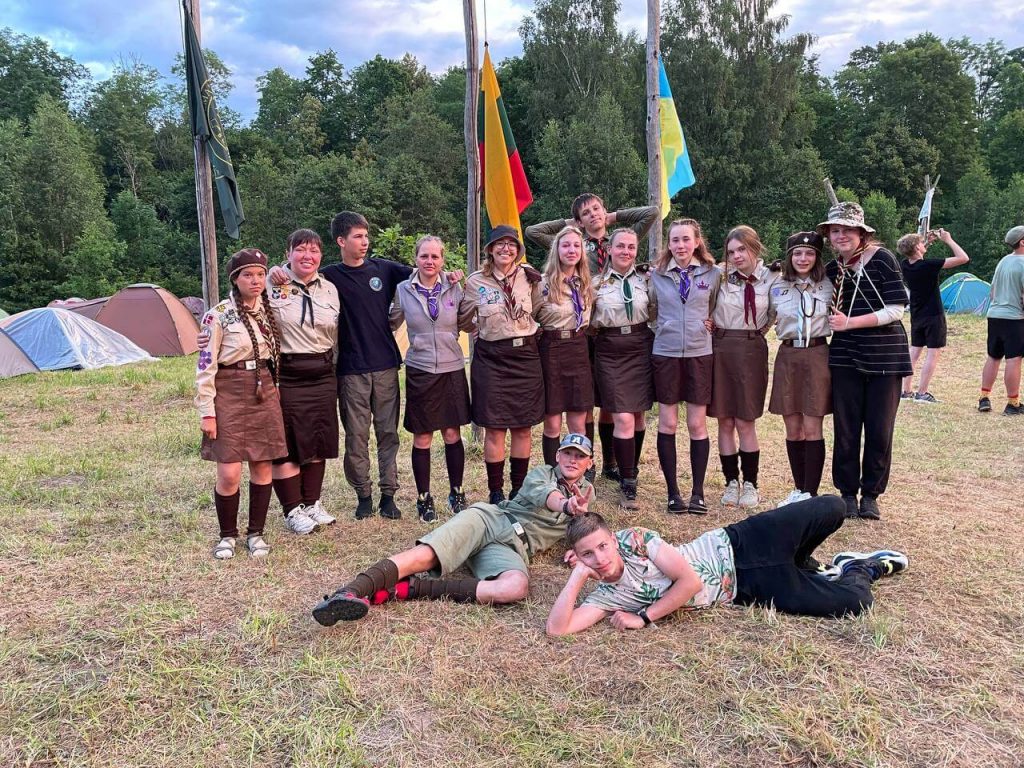
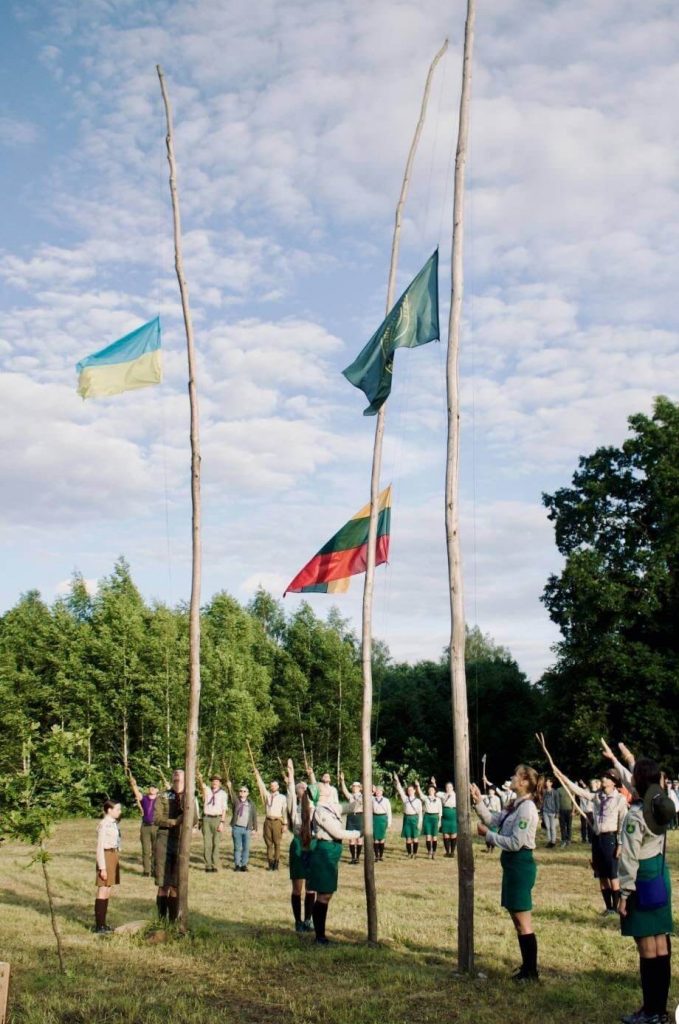
Lithuanians showed great respect to their Ukrainian guests, giving them an opportunity to speak each day before prayer. Plast scouts also studied the customs of the scouts with special interest: they learned their movements and commands in order to fit in to their protocols.
“The scouts quickly learned to understand the Lithuanian scouts, by speaking English and due to a strong desire to pass time pleasantly. We even learned a Lithuanian song”, — recalls the scout leader.
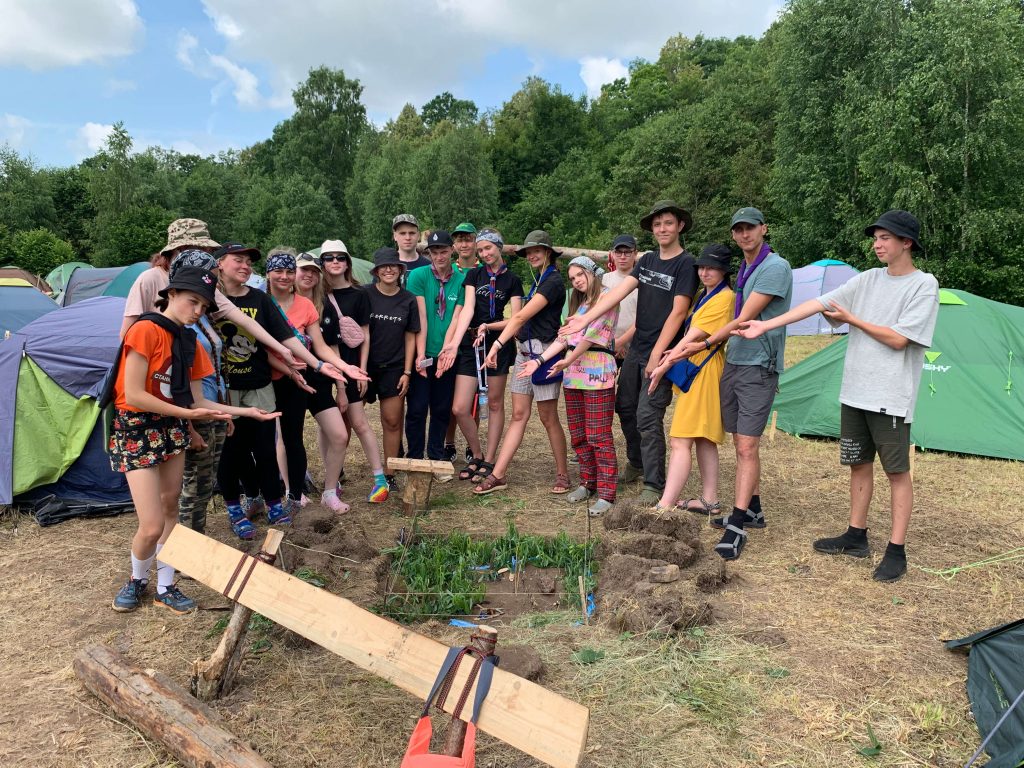
Similarly, at the camp “At the foot of the wooden throne”, the children could have fun, and rest far from the realities of war. They once again felt the spirit of the scouting game, delving into legends based on the motifs of the “Game of Thrones”.
One Plast scout, Yuliya Mishchenko, describes camping in more detail:
“At camp, it was very interesting for us. The Lithuanians were remarkably inviting and cared for our comfort. I noticed many similarities and their traditions reminded me of Plast. Each day, we ceremonially opened and closed the day in uniforms with songs and prayer. Scouts respect God and attend church or pray. However, it’s more cheerful in Lithuania — with guitars”.
In camping, there is a lot in common: living in tents, hiking with overnight stays, conversations and bonfires. It is especially noticeable how responsibly scouts treat camp structures.
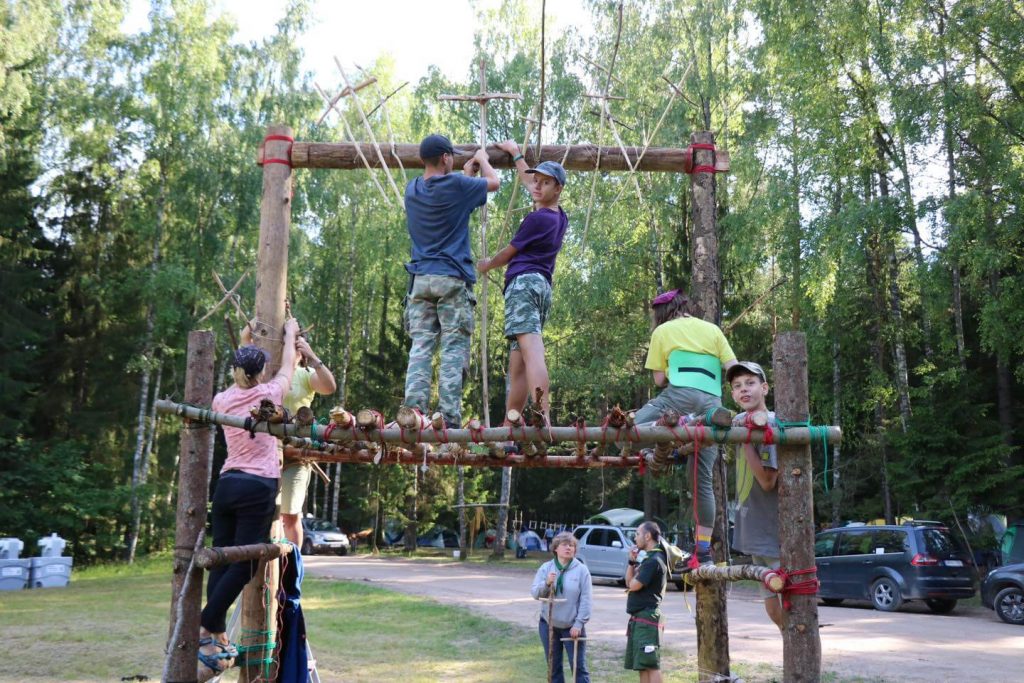
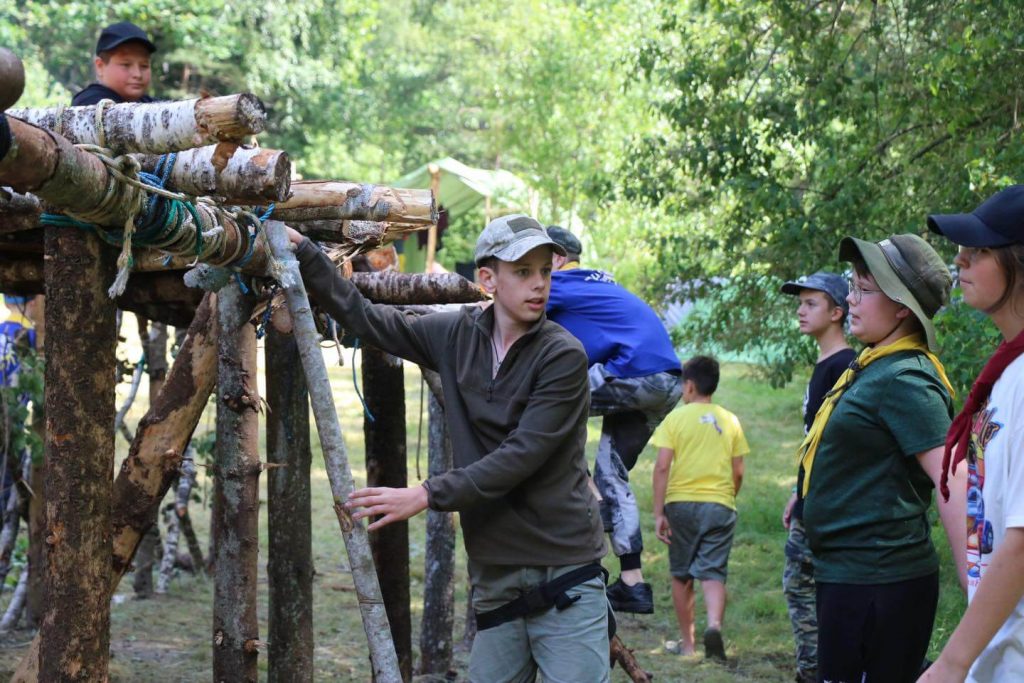
Yuliya also recalls: “Lithuanian campfires were lively, with many dances, interactive activities and games. We sang Ukrainian songs and they sang Lithuanian songs. Then, we described what the songs were about, translating, for example for example, “Lenta za lentoyu”. I noticed that they, like us, sing a lot about the war and difficult times for their country. The meanings of the songs were often very similar. Lithuanians have a good sense of what we are going through. The Motherland and freedom are very important to them, as well as to us”.
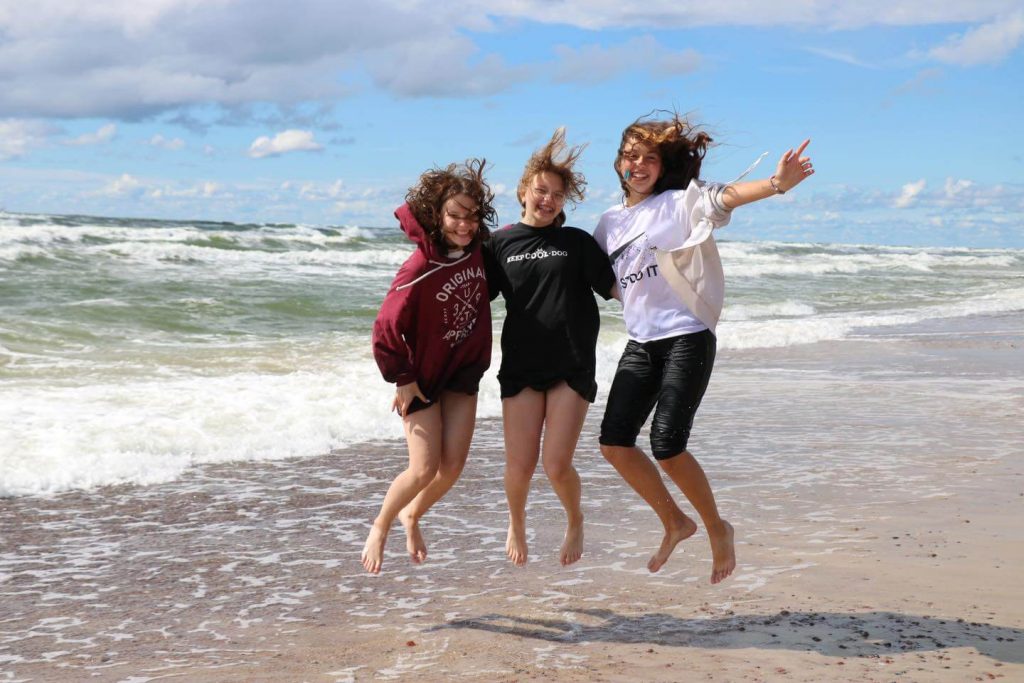
It was especially unexpected for Yuliya to meet Plast scouts in the ranks of Lithuanian scouts. Scouts who had been forced to leave their homes due to the war in Ukraine and moved to Lithuania, joined special Ukrainian groups in Lithuanian scouting. They were even allowed to wear their Plast uniforms to celebrations, equal with the official Scout uniform. This was similar to when Plast accepted Lithuanian scouts into its ranks during the Second World War.
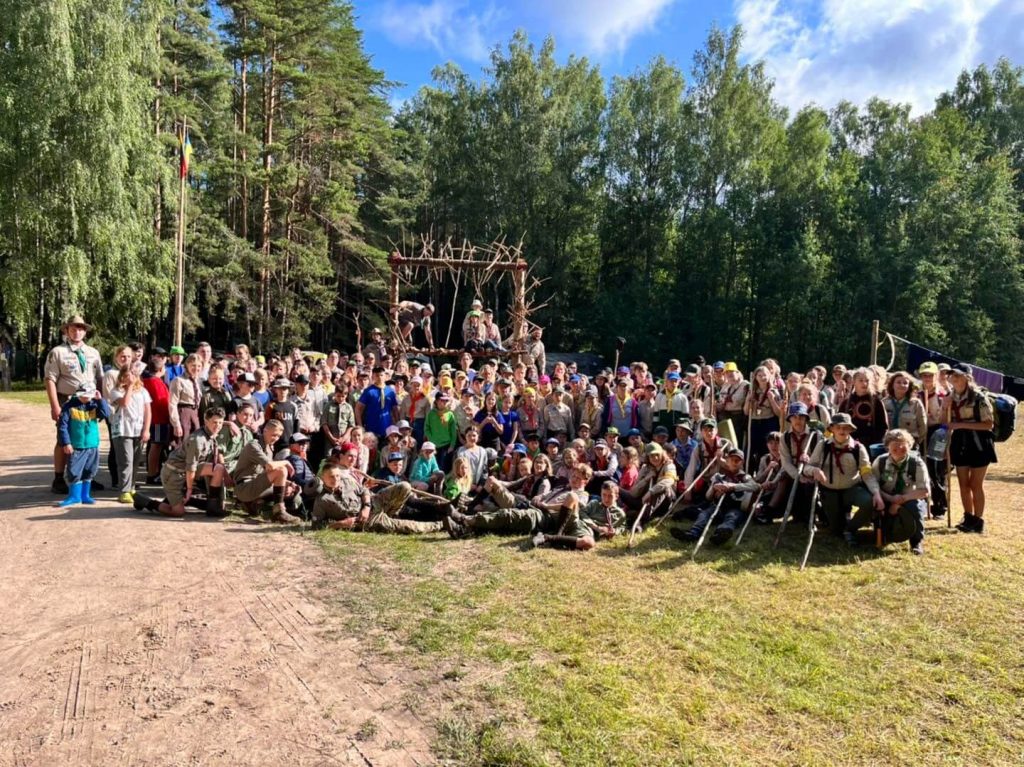
Attending camps in Lithuania brought many positives and useful insights for Plast, as cultural exchanges always spur growth.
Plast is grateful to Lithuanian scouts, that during wartime, they extended their hand to help. We know of many initiatives that they undertook in order to help us more quickly and easily overcome difficulties caused by the Russian invasion.
We thank the Lithuanians and all scouting organizations for their enduring friendship and commitment to the values laid down in the precepts of organizations.
Scouting unity touches our hearts and engenders faith that soon light will overcome darkness.
This article was written by eagle scout Olenka Dmytryshyn.
Based on the historical materials outlined by Yuriy Yuzych.
Deprecated: Function WP_Query was called with an argument that is deprecated since version 3.1.0!
caller_get_posts is deprecated. Use ignore_sticky_posts instead. in /home/plast/en.plast.org.ua/wp-includes/functions.php on line 5667Related news
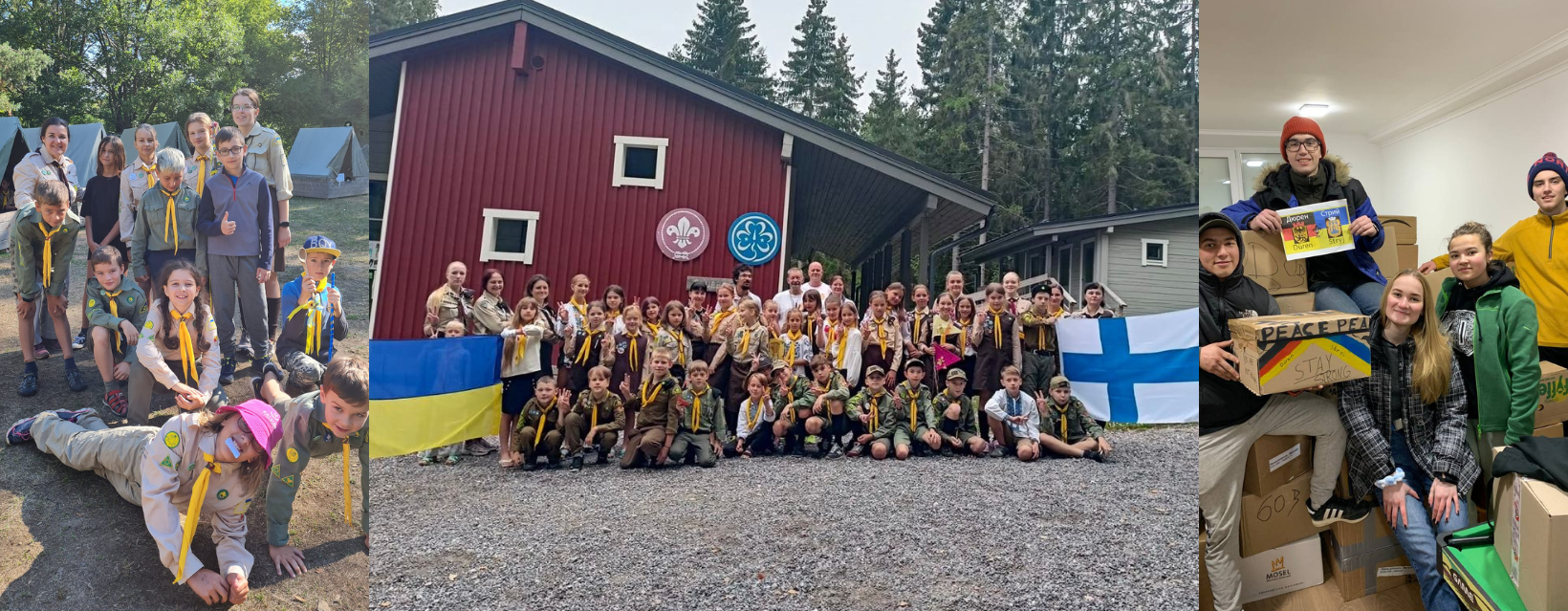
Assistance from scouts worldwide — camps and humanitarian aid
Learn more
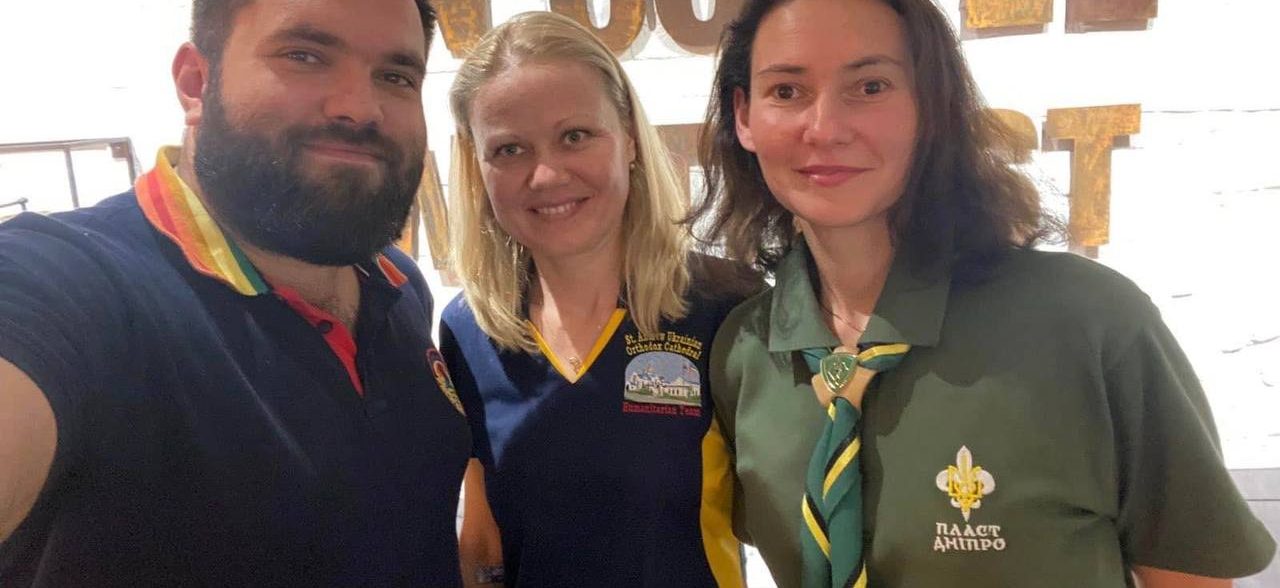
How the community in Washington helps the Plast headquarters in Dnipro
Learn more
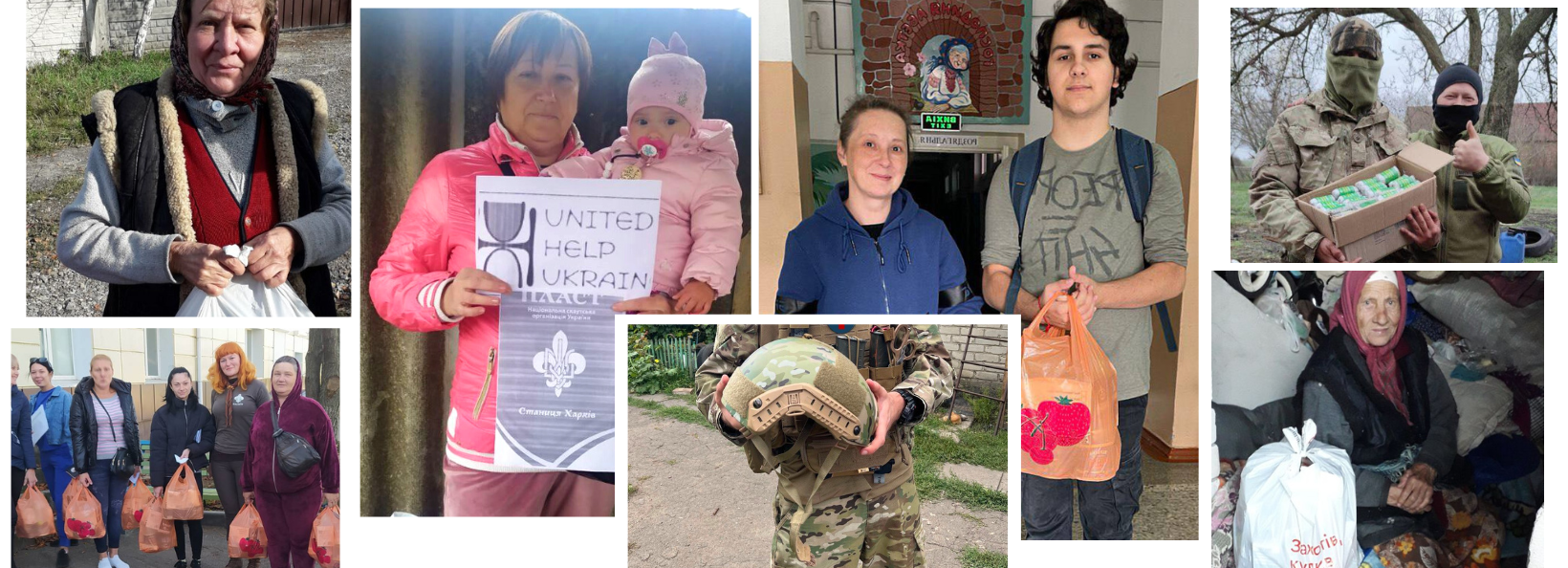
The American organization UHU gave Plast more than $75,000 to help Ukrainians and the scouts defenders
Learn more
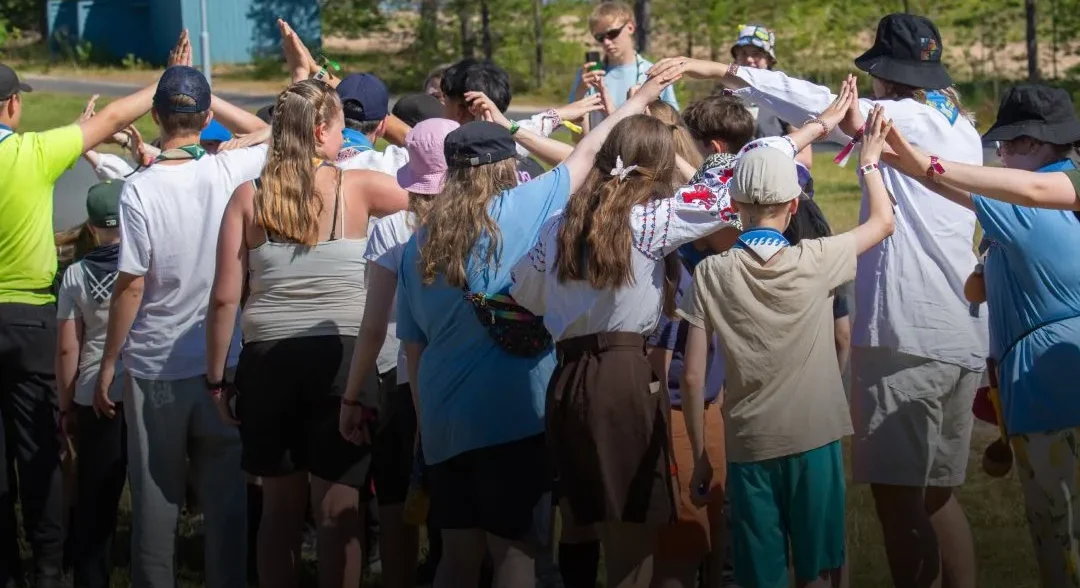
Orbis 2025: Plast represented Ukraine at the International Scout Camp in Finland
Learn more
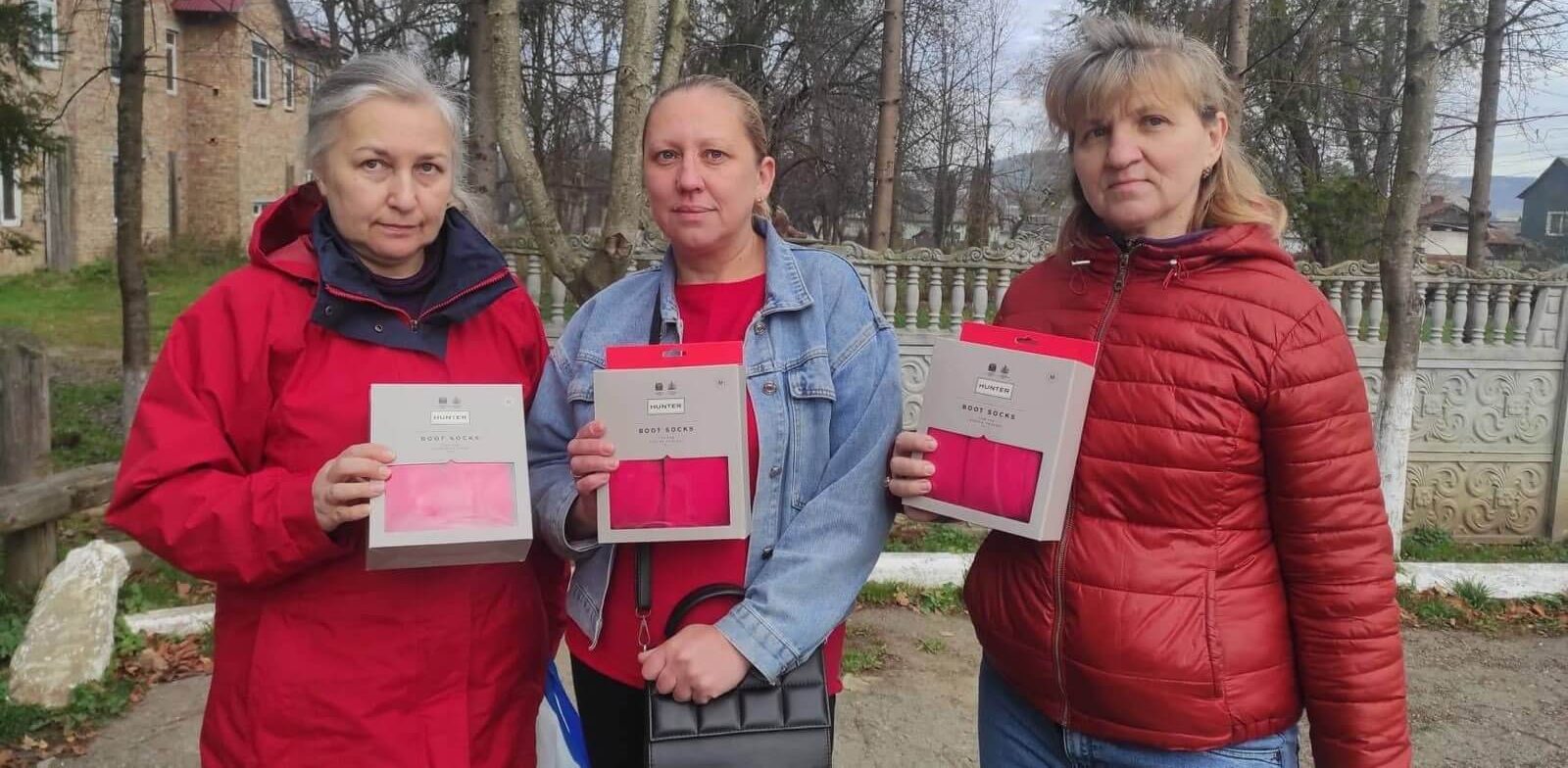
Canada-Ukraine Foundation and Plast helped more than 3000 families
Learn more






